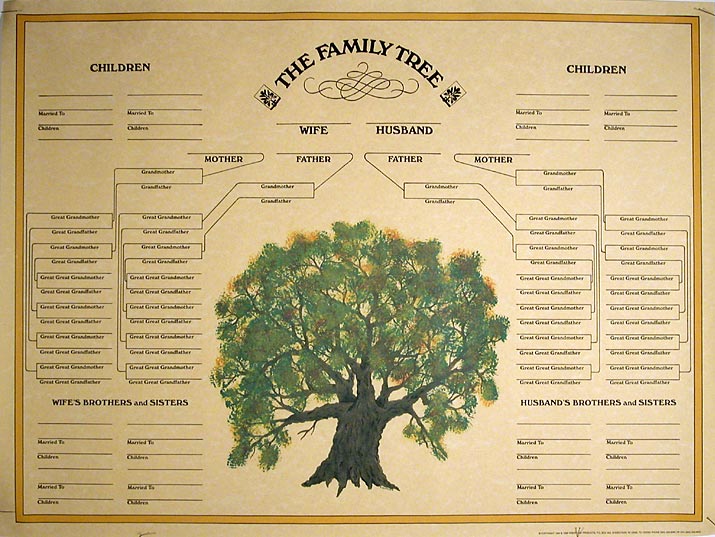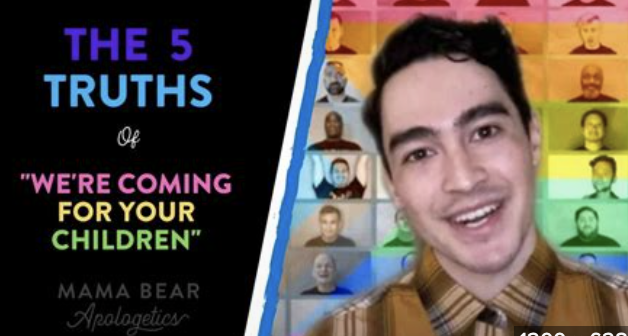Why Should The Redefinition of Marriage Concern Everyone?
Bishop James D. Conley of the Lincoln Diocese just published an excellent article, answering a common question posed to those of us who strongly oppose the redefinition of marriage. Bishop Conley explains that love of neighbor has been a teaching for thousands of years. Jesus Christ Himself (a/k/a God) teaches that love of God and love of neighbor are not only the two greatest and fundamental truths, they are very closely related. But even before the Gospel was written, there were some ancient philosophers, such as Horace, who recognized the logic of taking responsibility for our neighbors. For most Christians, the concept of being a caring and compassionate member of a larger community is easy to understand because we believe we are all members of the Body of Christ. But for many people, their goals and interests in life are more self-oriented because they don’t believe in a universal Church, and some have beliefs that are more in line with paganism than Christianity. Our culture often chooses to turn a blind eye because we do not see an immediate threat and therefore fail to consider the impact a few weeks, months or years down the road. In other words, we violate the golden rule of chess; we don’t think three moves ahead.
Unfortunately, when humans try to manipulate things like natural law, even thinking three moves ahead is woefully inadequate. But whether you are Christian or not, it is essential that you consider the implications of the redefinition of marriage. Clearly, one goal of the LGBT community is to not only make same-sex marriage legal, it is to make it “normal” and along with it, make homosexual behavior seem normal. This threatens the well-being of children in our culture in very troubling ways as it alters the very reason for marriage, changing it from that which best serves our children and therefore society, to something that serves the wishes of the adults. The common LGBT phrase, “we just want all the right heterosexuals have”, eliminates the best interest of children.
But another and less discussed way to emphasize why married heterosexuals should be concerned about protecting and defending marriage is to illustrate some of the problems that you will not hear from the LGBT community, the press, politicians or even medical professionals regarding the medical risks of homosexual behavior. I did a little of my own research on the health risks we see in the LGBT lifestyle, I found many reasons to be alarmed at the prospect of increasing the behavior in our culture:
- General health:
- Gays and lesbians were more likely to smoke and binge drink compared to heterosexuals. (http://www.nlm.nih.gov/medlineplus/news/fullstory_147319.html accessed 8-28-13)
- More than one-third of lesbians and 40% of bisexual women were obese compared to 28 percent of straight women. (http://www.nlm.nih.gov/medlineplus/news/fullstory_147319.html accessed 8-28-13)
- There is very little data on the general health of lesbians. (http://www.ncbi.nlm.nih.gov/books/NBK45103/ accessed 8-29-14)
- The annual diagnosis rate of HIV has climbed among young gay and bisexual males. (http://www.nlm.nih.gov/medlineplus/news/fullstory_147412.html accessed 8-28-14)
- Male homosexuals are disproportionately represented in new hepatitis diagnoses each year.
- About 3% of Americans are homosexual, but homosexual males represent 10 % of new Hepatitis A and 20% of all new Hepatitis B. (http://www.cdc.gov/msmhealth/viral-hepatitis.htm accessed 8-29-14)
- Cancer:
- Men who have sex with men (MSM’s) are 20 (CDC says 17) times more likely to be diagnosed with rectal cancer than the general population of males. (http://www.cancer-network.org/cancer_information/gay_men_and_cancer/anal_cancer_hiv_and_gay_men.php acc 8-28-14)
- The American Cancer Society said the LGBT population may be more at risk for lung cancer because they tend to use tobacco more frequently than the general population.
- The American Cancer Society said lesbians have a “dense cluster of risk factors significantly raising their risk” of breast cancer.
- HPV, which is more prevalent in the LGBT population, is a significant cause of oral cancers that attack the base of the tongue and the tonsils but the medical screening is not up to date on oral cancer, so the facts and precautions are currently unknown (http://bodymindsoul.org/2011/09/hpv-and-oral-cancer/ accessed 8-29-14)
- STD’s:
- 75% of all sexually active adults contract some form of HPV in their lifetime. (http://www.cancer-network.org/cancer_information/gay_men_and_cancer/anal_cancer_hiv_and_gay_men.php acc 8-28-14)
- Some HPV strains increase the likelihood of cervical cancer in women and rectal cancer in men.
- 95% of HIV positive males also have HPV.
- Condoms do not provide a significant defense against contracting HPV.
- Although MSM accounts for only 3% of the population, they account for 63% of new primary and secondary syphilis cases in the U.S. (http://www.cdc.gov/msmhealth/STD.htm accessed 8-29-14)
- According to the CDC, there are about 50,000 new cases of HIV diagnosed each year. But homosexual males are disproportionately represented in shocking numbers.
- There was a 21% increase in new HIV cases for 13-29yr olds from 2006-2009.
- In young gay and bisexual men, the increase was 34% in this timeframe.
- Individuals with HPV–and especially with more than one type of HPV–are at greater risk of contracting HIV. (http://www.edgesanfrancisco.com/index.php?ch=news&sc=&sc3=&id=103868&pf=1 accessed 8-29-14)
- In 2006, MSM accounted for nearly half of the 1 million people living with HIV in the U.S. and accounted for more than ½ of new infections.
- The San Francisco City Clinic has a chart that explains the risks of oral sex & contracting STD’s. It explains that the chance of contracting herpes is high and that there is no cure. It goes on to estimate that 30-50% of HIV negative males have genital herpes and that up to 80% of HIV positive males have genital herpes.
- The only STD that gets a rating of “low” for chances of contraction is intestinal parasites.
- It estimates that about 25% of the gay male population of San Francisco is HIV positive and that some of these men don’t know they are infected.
- According to the Williams Institute, there are approximately 57,000 gay men living in San Francisco. (“How Many People are Lesbian, Gay, Bisexual and Transgender?”. Williamsinstitute.law.ucla.edu. accessed 8-29-14).
- This means that over there are more than 14,000 HIV infected men living in San Francisco and some portion of them don’t know they are infected.
- According to the Williams Institute, there are approximately 57,000 gay men living in San Francisco. (“How Many People are Lesbian, Gay, Bisexual and Transgender?”. Williamsinstitute.law.ucla.edu. accessed 8-29-14).
- There was a 21% increase in new HIV cases for 13-29yr olds from 2006-2009.
- 75% of all sexually active adults contract some form of HPV in their lifetime. (http://www.cancer-network.org/cancer_information/gay_men_and_cancer/anal_cancer_hiv_and_gay_men.php acc 8-28-14)
- Drug and Alcohol issues:
- The CDC website (as of 8-29-14) states that the LGBT population is more likely to use alcohol and drugs, have higher rates of substance abuse, is less likely to abstain from alcohol and drug use and is more likely to continue heavy alcohol use later in life, than the general population.
- Psychological:
- Comparisons of environments with broad acceptance of homosexual behavior to environments intolerant of homosexual behavior shows the same elevated levels of mental illness in the LGBT populations. (http://www.narth.com/docs/whitehead.html)
- Drs. Paul and Kirk Cameron;
- Dr. Richard Fitzgibbons;
- Dr. Neil Whitehead.
- Homosexuals are at higher risk of mental disorder, suicidal ideation, substance misuse and self-harm than heterosexual people. – Dr. Apu Chakraborty of University College London.
- Chakraborty suspects discrimination may be a cause, but says, to study the true impact of sexuality-based discrimination on mental health problems, a longer-term approach is needed.
- The National Alliance on Mental Illness reports that the LGBT population is 2.5 times more likely than the general population, to be diagnosed with a mental disorder.
- Approximately 25% of the 18 million Americans with a serious mental illness (requiring hospitalization or in-patient care), are from the LGBT population. (Laumann, E.O., Gagnon, J.H., Michael, R.T., & Michaels, S. (1994). The social organization of sexuality: Sexual practices in the United States. Chicago, IL: University of Chicago Press.)
- This tells us that the LGBT population is highly overrepresented due to the fact that less than 4% of the U.S. population is lesbian, gay, bisexual or transgendered.
- Men with lifetime histories of same-sex sexual partners may well be at somewhat higher risk for a lifetime diagnosis of major affective disorder than exclusively heterosexually experienced men. Cochran & Mays, Am J Public Health. 2000 April; 90(4): 573-578
- Gay men are much more likely to suffer from bulimia or anorexia nervosa.
- Comparisons of environments with broad acceptance of homosexual behavior to environments intolerant of homosexual behavior shows the same elevated levels of mental illness in the LGBT populations. (http://www.narth.com/docs/whitehead.html)
- Violence & abuse:
- There is a higher rate of abuse in MSM relationships.
- One study (J Urban Health. Sep 2007; 84(5): 681-690) found that 32.4% of men had experienced abuse in their intimate homosexual relationship, compared to 20% in marriages of one man and one woman (http://www.aamft.org/iMIS15/AAMFT/Content/Consumer_Updates/Domestic_Violence.aspx accessed 8-29-14).
- The U.S. Dept. of Justice found that 23% of males who said they had lived with a same-sex intimate partner reported being victimized by that partner whereas only 7.4% of heterosexual men reported being victimized by their wife/girlfriend.
- Lesbians reported 39.2% victimization by their partner as opposed to 21.7% of heterosexual females. (Extent, Nature, and Consequences of Intimate Partner Violence,” U.S. Department of Justice: Office of Justice Programs (July, 2000): 30.)
- There is a higher rate of abuse in MSM relationships.
That is a lot of statistics and information, but one of them seems to stand out to me because I never hear about it from anyone. 2(a) says that men who have sex with men have a much higher risk of developing rectal cancer than the rest of men in society. To help you understand how significant this risk is, let’s compare it to cigarette smoking. We all know that is a big factor in lung cancer. In fact, cigarette cartons and packages have a government warning on them and have had such warnings for many years. According to the CDC, people who smoke cigarettes are 15 to 30 times more likely to get lung cancer or die from lung cancer than people who do not smoke. If men who have sex with men are 20 times more likely to develop rectal cancer, shouldn’t there be a similar effort to alert everyone to the risk? Maybe some people think that lung cancer is so much more deadly than rectal cancer that the probability of death warrants a warning of one risk but not the other. The CDC says:
“Of the cancers that affect both men and women, colorectal cancer is the second leading cause of cancer-related deaths in the US. It is the third most common cancer in men and women… Symptoms of colorectal cancer may not always be noticeable, especially in the early stages, which is why screening regularly is very important.” (http://www.cdc.gov/healthcommunication/toolstemplates/entertainmented/tips/colorectalcancer.html emphasis added)
As you can see, rectal cancer is not a rare and easily treated cancer. In fact, it is already frequent and deadly. It is a lot more frequent among homosexual men. Rectal cancer is just one of the many sad risks and consequences of the homosexual lifestyle. And while the consequences are many, this one may be one of the clearest examples of a consequence of ignoring natural law. It is the 2nd leading cause of cancer-related deaths and the 3rd most common form of cancer in America, and few people have ever heard of it before. Is it possible that the silence about this one fact is the result of a culture that teaches us not only to seek our own personal happiness, but to ignore or at worst, tolerate, our neighbor in the process?
So, a combination of two perspectives gives us all a reason to be concerned. First, Bishop Conley is absolutely right, we are not only to look out for our own best interests, but also the best interests of others. This has a religious basis and it simply makes logical sense. Additionally, the medical evidence shows us that there is a serious medical reason to look out for our children and other family members because the decision to engage in the LGBT lifestyle is a decision to engage in reckless disregard for the person’s health. This disregard can in many cases (way too many) lead to a life of despair and eventually, an early death. The loss of a family member, especially a child, is extremely traumatic.
Then there are the financial aspects of health problems. Now I’m finally talking about something Americans can agree on, right? If it impacts our pocket book, we start getting really concerned, don’t we? Who pays for the care of the sick and dying in a culture who’s birthrate has already dropped to the bare minimum replacement rate? The fact is, the quality of care for the sick and dying is going to deteriorate over time because there will not be care providers, facilities or funds to provide proper care. As what would be otherwise healthy wage-earners drop out of the work force due to cancer, HIV, depression, alcoholism, etc…, fewer young workers are coming up to contribute tax dollars off of their income. Will America look to the same sources for young workers that France, England and other Europeans have? You may not be aware, but several European countries have neighborhoods and towns that are “no go” areas for local law enforcement because the areas observe only Sharia law.
Therefore, you probably will care about this issue as much as I do at some point, but it won’t do you any good to start caring after your child has a medical issue or after the culture changes right in front of your eyes. The time to think deeply about this issue and begin thinking several moves ahead, is now. Same-sex marriage and the LGBT lifestyle are not minor and harmless alterations of our society and natural law. Bishop Conley knows it, I know it and hopefully, you are now interested in learning more about the dangers we face.




